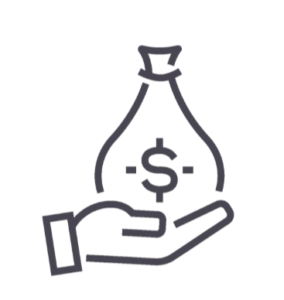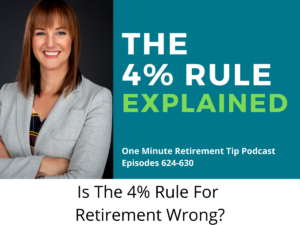
SCHEDULE YOUR FREE 15-MINUTE PORTFOLIO STRATEGY CALL >>>HTTPS://BIT.LY/2AQKMXL
In the Market & Economic Outlook, we separate the relevant from the noise, to bring you timely content that helps you on the path to and through retirement!
 STATE OF THE MARKETS (S&P 500 -1.3 YTD THROUGH 7/13/2020)
STATE OF THE MARKETS (S&P 500 -1.3 YTD THROUGH 7/13/2020)
Stocks finished the second quarter up 20% – its best quarter in over two decades! That’s remarkable considering business was brought to a standstill. In just a few months, we have witnessed a bear market, a recession, and subsequent recovery compressed in a short span of time.
Invaluable Lessons
There are some invaluable lessons we can all learn from this painful experience.
Lesson 1: When you are in the depths of a recession or when fear is extremely high it’s a great time to be buying stocks.
Lesson 2: Bear markets happen every few years and they can’t be predicted.
Lesson 3: If you want the solid long-term returns that stocks can provide you have to be willing to live with volatility and bear markets.
Lesson 4: Panic, fear, emotional decision-making and trying to time the market are not good long-term investment strategies. They typically lead to missing out on potential gains or paying higher prices later on when conditions improve.
You have to be in it to win it!
Looking Ahead…
Three important factors will help the market in the months to come.
- First, we fully expect another $1-2 trillion stimulus package to help keep the economy moving in the right direction.
- Second, the Fed is going to continue to do “whatever is necessary” to provide liquidity and stem mass bankruptcies.
- Third, investors are sitting on $4.5 trillion of cash – waiting for a pullback to invest. With money markets and short-term instruments paying virtually nothing – eventually a good portion of this idle cash could find its way back into stocks – probably at higher prices!
Investors need to be prepared for negative surprises like a surge in Covid-19 cases or failure to develop a vaccine. Plus, the Presidential election is only 4 months away, so that will bring even more uncertainty and volatility.
Consequently, there will surely be pullbacks and bouts of consolidation along the way. However, if we are in a new bull market, a year from now stocks should still be at higher levels.
Don’t let the pullbacks scare you into playing defense with your investments – continue to buy the dips!
 Economic Update
Economic Update
There is increasing evidence that the economy is bottoming. Conditions in the U.S. are bad but they’re not getting worse. Business activity was down in May, but not as much as in March and April.
The Conference Board Leading Economic Index rose in May, led by an 8.2% increase in consumer spending. We are seeing increased bookings for travel, hotels, rising freight shipments, and more real estate activity.
The economy will likely bottom in the second quarter with a massive recovery in output by the fourth quarter.
 Investment Themes
Investment Themes
In addition to opportunities that exist broadly in the current economic and market climate, here is an area we are emphasizing in client portfolios:
VALUE STOCKS- UNLOVED AND OUT OF FAVOR
Value stocks make a great deal of sense at this juncture of the recovery because they are unloved and out of favor. In fact, the Russell 1000 Value Index is down -16% in 2020 vs. a +10% for the Russell 1000 Growth Index.
But why is this disparity so great? It’s because much of the Value Index consists of banks and energy stocks which have been dealing with low interest rates and plunging energy prices. But once the economy starts to reaccelerate, those businesses should recover, as should their stocks prices.
In addition, growth is dominated by technology which has been on fire as of late. In fact, the five largest companies (Alphabet, Amazon, Apple, Microsoft, and Facebook) represent almost 25% of the S&P 500 Index (which is market cap weighted). Plus, the valuation gap between growth and value maybe the widest it’s been ever and when that’s occurred in the past it’s been a great time to buy value.
 Bottom Line
Bottom Line
Stocks staged an incredible comeback in the second quarter. It now appears that the economy and the stock market have bottomed, and a recovery is underway. While negative bumps are likely as coronavirus infections and deaths mount, we believe that additional stimulus, liquidity provided by the Fed, and cash being put back to work will help boost the economy and the stock market in the months ahead.


Recent & Related Posts:
Disclosure:
The views outlined in this newsletter are those of True North Retirement Advisors (TNRA) and should not be construed as individualized or personalized investment advice. Any economic and/or performance information cited is historical and not indicative of future results. Economic forecasts set forth may not develop as predicted.
Different types of investments involve varying degrees of risk, and there can be no assurance that the future performance of any specific investment, investment strategy, or product made reference to directly or indirectly, will be profitable, equal any corresponding indicated historical performance level(s), or be suitable for a given client or portfolio.
Investing in stocks includes numerous specific risks including the fluctuation of dividend, loss of entire principal and potential illiquidity of the investment in a declining market. Bonds are subject to market and interest rate risk if sold prior to maturity. Bond and bond mutual fund values and yields will decline as interest rates rise and bonds are subject to availability and change in price.
Any questions regarding the applicability of any specific issue discussed above should be addressed with TNRA. All information, including that used to compile charts and/or tables, is obtained from sources believed to be reliable, but TNRA has not verified its accuracy and does not guarantee its reliability.
Moreover, you should not assume that any discussion or information contained in the newsletter serves as the receipt of, or as a substitute for, personalized investment advice from TNRA or from any other investment professional. To the extent that you have any questions regarding the applicability of any specific issue discussed above to your individual situation, you are encouraged to consult with TNRA or the professional advisor of your choosing. All information, including that used to compile charts, is obtained from sources believed to be reliable, but TNRA has not verified its accuracy and does not guarantee its reliability.






